
Interview 121
Testicular cancer (teratoma) diagnosed in 1995, with secondary tumours in abdomen. Orchidectomy followed by four cycles of chemotherapy (each cycle over three weeks with 6 days in hospital).
Quantity surveyor; married, no children.
Here, you can find any of the interviews on this site.

Testicular cancer (teratoma) diagnosed in 1995, with secondary tumours in abdomen. Orchidectomy followed by four cycles of chemotherapy (each cycle over three weeks with 6 days in hospital).
Quantity surveyor; married, no children.
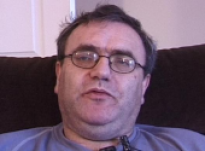
Diagnosed with testicular cancer (seminoma) with secondary tumours in 1991, followed by right orchidectomy and chemotherapy. In 1993, pain in lower abdomen. Left testicle was found to be fibrosed and infected. Left orchidectomy, and testosterone replacement therapy. Also has kidney disease and diabetes as the result of treatment.
Retired Managing Director; divorced, 2 children.

Arthur W. Frank, diagnosed testicular cancer (seminoma) in October 1985. Orchidectomy followed by chemotherapy for secondary abdominal tumours. Author..
University professor; married, 2 children
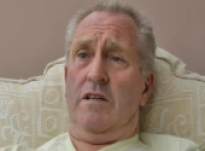
Steve found an abrasion on his penis. After seeing his GP he was falsely diagnosed with Herpes. His condition did not respond to treatment and he was referred to a dermatologist who diagnosed cancer in 2005. Steve underwent a partial penectomy, reconstructive surgery and removal of lymph nodes.
Steve is a White male with grown up children. Steve is a retired paver.

Frank had discomfort in his penis and was finding urination difficult. A lump emerged on Frank's penis. He saw his GP and was given a preliminary diagnosis of cancer, this was confirmed after a biopsy. Weeks later Frank went on to have a partial penectomy.
Frank is a White male in his 70s. Frank is single with a grown up child, aged 46. He is a retired business development manager by trade at a large...
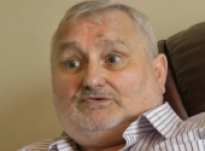
Barry found what turned out to be a malignant lump on the side of his penis. After having the lump removed Barry had a successful course of chemotherapy and radiotherapy. Unfortunately the cancer returned a number of years later, and Barry had to undergo further surgery to remove the affected area.
Barry is a White male and is trained as an approved electrician. He is not currently married.
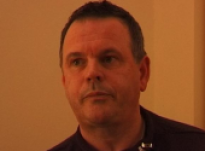
Testicular cancer (seminoma) diagnosed in 1987; orchidectomy. No secondary tumours, but radiotherapy 5 times a week for a month to prevent recurrence.
Company Director; single, no children.
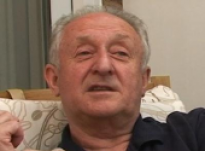
Ken was diagnosed with prostate cancer in 2002. He received radiotherapy as the cancer wasn't operable. He now sees his GP for his PSA tests, but does not currently receive his test results. He feels lucky to have survived cancer.
Ken is a retired electrician. He is widowed, and has a son. Ethnic Background: White British.

Jim was diagnosed with prostate cancer 8 years ago. Nowadays, he doesn't think about having had cancer, but does experience ongoing problems with his stomach which may be related to having radiotherapy.
Jim is married, with two sons aged 47 and 44. He is a retired skilled inspector (engineering). Ethnic Background: White British.
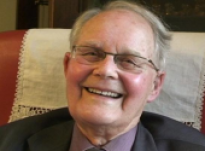
John was diagnosed with prostate cancer 8 years ago. He receives regular hormone implants, which has lead to some side effects including an impact on his sex life. He has accepted that prostate cancer is unlikely to end his life, and doesn't think about it much nowadays.
John is a retired director of technical services (chartered civil engineer), but still works as a Methodist preacher. He is married with four children aged 55, 53, 51 and 49....